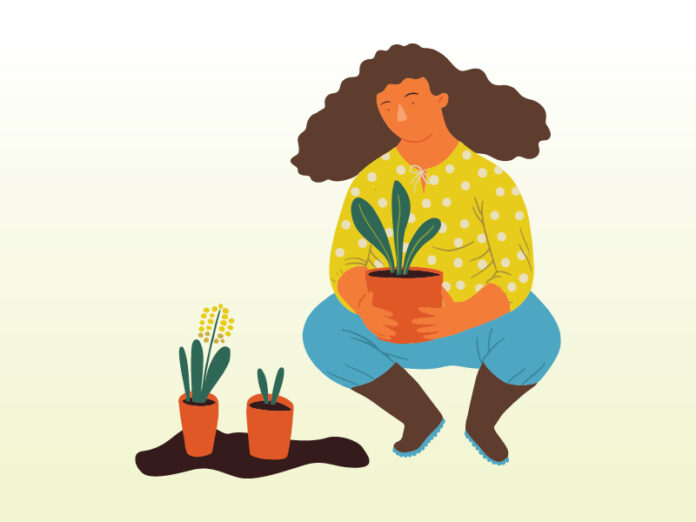
Whether it’s a few patio pots of herbs, a full-on veggie garden or a bed of flowers and perennials, gardeners get their groove on once spring arrives. And science is now showing that gardeners seem to be happier and healthier than those who don’t garden.
What is it about gardening that is good for mental health?
The 19th century French writer Voltaire said that if you take care of your garden, it will take care of you. And research shows that spending time outdoors is one of the best ways to improve mental and physical wellbeing. Gardening is great way to do this.
Being in nature lowers stress. One study showed that people who spent 30 minutes gardening were more positive and their cortisol levels went down more, compared to people who spent the time reading.
Gardening allows you to express your identity and be creative, which is psychologically rewarding in itself. More than that, gardening can provide a kind of sanctuary. It allows people to escape from the stresses and strains of daily life. Gardening needs relatively little mental effort, leaving people free to reflect or to switch off completely. Gardeners sometimes say that working on nature’s time helps keep them sane. The fascination of seeing plants grow, as well as physically engaging in gardening, lets their attention wander into another world.
Gardening can also be a way to feel in touch with the past. Growing familiar flowers or vegetables can often help immigrants feel ‘at home’ in their new country. Filling a space with plants that remind you of a particular place or person can be a great way to express personal history and culture.
What if I don’t have a yard?
For people who do not have a home-gardening space, community gardens have become hugely popular and can bring the same mental health benefits. In addition, garden therapy is becoming more popular and gives patients a greater sense of self-esteem, confidence and productivity. Evidence from research around the world shows benefits for people with depression or psychosis, for recovering addicts, young offenders, cancer sufferers and many more. A key bonus is the chance to socialize and enjoy nature with others.
What are the physical benefits?
Regular doses of green exercise are known to be good for your health. Whether you’ve got green thumbs or are just starting out, gardening is good physical exercise. Depending on how hard you work, you can burn up to 250 calories in half an hour.
How often do I have to garden to see benefits?
You don’t have to be out for hours. Research shows short sessions are just as effective at improving mood. The health benefits of a mental break were the same for some Japanese allotment gardeners whether they went for an hour twice a week, or a shorter time only once a week. Even very short (less than 5 minutes) sessions looking at nature can improve wellbeing and the ability to focus on tasks. So, popping into the garden for a just few minutes can still boost your mood.
You don’t need to be an expert to take up gardening and there are many ways to incorporate it into your life. Gardening can teach you both patience, as you wait for your plants to grow, and gratitude, which you’ll feel when you see the end result of your labours.And what can be more satisfying than that?















